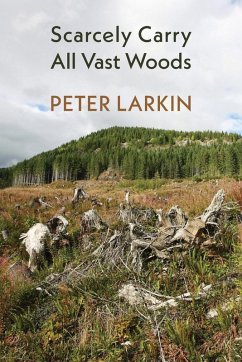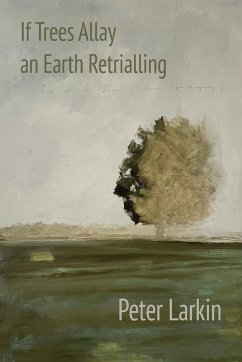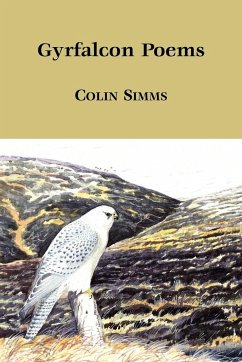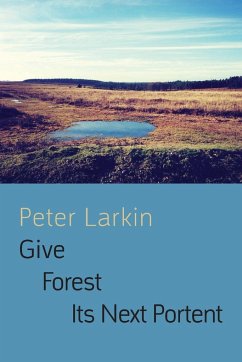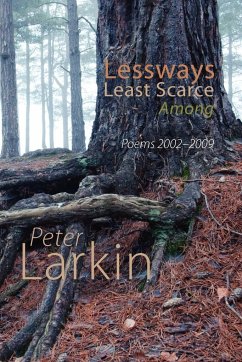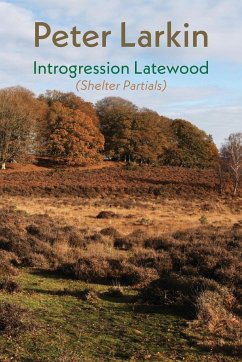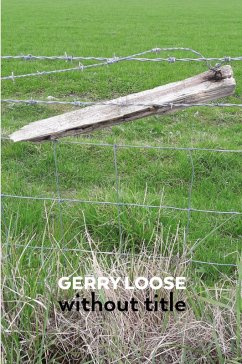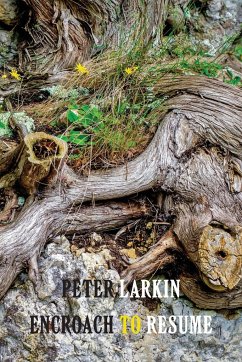
Encroach to Resume
Versandkostenfrei!
Versandfertig in 1-2 Wochen
16,99 €
inkl. MwSt.

PAYBACK Punkte
8 °P sammeln!
These poems entwine round such matters as how roots move as they grow or how feet plant themselves, why a forest admits lanes and lines but obstructs them into shelter, how a tree might relate to all it isn't, what the hidden domains of nature can mean in and for trees, or the way in which trees cast the skies themselves into flight. The two last poems envisage a body language for trees, or how a dead upright tree remains a living nub of forest. "Setting up an ecological orientation against habitual ways of reading and perceiving language, Larkin's poems offer scientifically descriptive close ...
These poems entwine round such matters as how roots move as they grow or how feet plant themselves, why a forest admits lanes and lines but obstructs them into shelter, how a tree might relate to all it isn't, what the hidden domains of nature can mean in and for trees, or the way in which trees cast the skies themselves into flight. The two last poems envisage a body language for trees, or how a dead upright tree remains a living nub of forest. "Setting up an ecological orientation against habitual ways of reading and perceiving language, Larkin's poems offer scientifically descriptive close investi-gations of trees whilst implying an allegorical dimension. They do so by means of a range of registers that only gain their scarce value in relation to one another." -Katharina Maria Kalinowski "Peter Larkin's radically de-anthropocentrized poetry offers restorative glimpses of a possible 'dimensional commons'. Encroach to Resume continues that dedicated project, now branching beyond our Anthroposcenic 'gap in the planet baled out by tree-pumps' towards a hyper-extensive terrain of organic and poetic interrelation. Through metamorphic expressions of encroachment and resumption, congealment and bifurcation, collapse and recovery, these poems are saturated by thresholds of contact between things 'differently given, not / riven in difference'. The collection represents another landmark in Larkin's own conceptual forest, furthering the unique somatic-semantic plexus of his bewildering and vital body of poetry." -Dominic Hand



